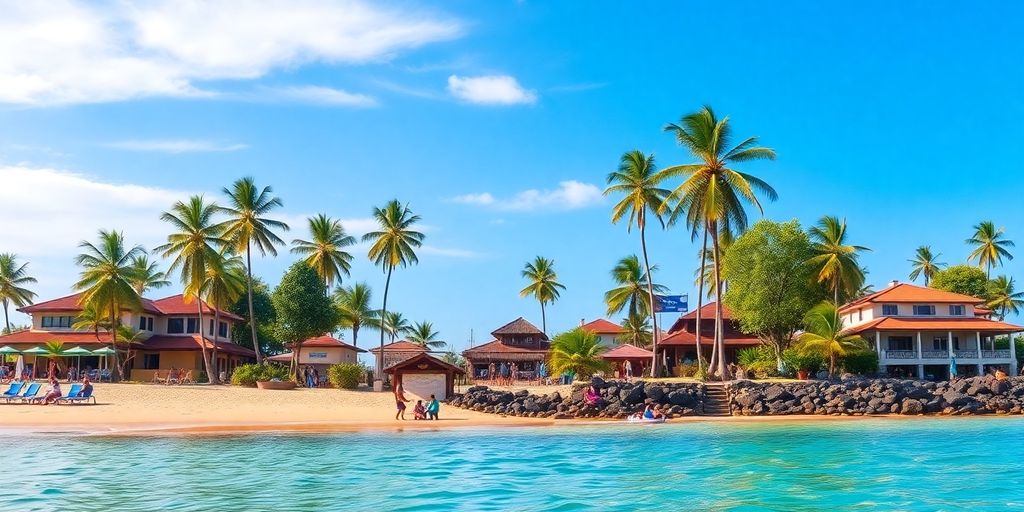The Secret Life of a Grab Driver in Bali | Documentary

This article looks at the life of Leon, a Grab driver in Bali, Indonesia. It explores the challenges he faces, like low pay and dangerous traffic, while also showing how Bali is changing due to tourism and development. The story highlights the human side of these changes, focusing on family, survival, and the quiet pressure of being left behind in a rapidly changing world.
The Changing Face of Bali
Fifty years ago, Bali was a quiet place, known as the “Island of the Gods.” It had small villages, rice fields, and palm trees. Tourists were few, mostly surfers who stayed in simple huts. Now, Bali is a busy international spot. It has everything a Westerner might want, from fancy villas to special services. About 6.3 million tourists visit this small island every year. Many rice fields have been sold and turned into empty lots, waiting for new buildings.
It’s hard to blame a rice farmer for selling land to a rich person, earning more money in one day than their family might have seen in a long time. Balinese people have had to quickly adjust to these changes. Tourism became the main way to make money, with millions of dollars coming in from all over the world.
The World of a Grab Driver
Companies like Grab and Gojek are everywhere in Bali. Their drivers are like busy bees, knowing every shortcut and traffic spot. They are an unseen workforce that tourists use but rarely notice. They wear green jackets, which makes them easy to spot. These drivers take tourists and influencers around all day, earning much less than the people they drive, even though they are just as smart.
Key Takeaways
- Low Pay: Grab drivers earn a small fraction of what many tourists make, despite doing important work.
- Hard Work: Drivers often work long hours in tough conditions, dealing with pollution and heat.
- Hidden Lives: Tourists often don’t see the real lives of these drivers beyond their service.
A Glimpse into Leon’s Life
Leon is one of these drivers. He has been a Gojek driver for six years. He says the worst part of his job is when customers cheat him, like ordering food and then not being there to pick it up. The best part is meeting friendly customers. He mentioned that Russian tourists often don’t tip, but he cares more about people being nice and respectful.
We tried to track Leon’s shift to see what it’s like. Leon is full of positive energy, moving through traffic easily. He works about eight hours a day, or more if he’s not tired. He earns around 300,000 Indonesian Rupiah a day, which is about $20, not including tips. He’s always smiling and happy to meet new customers. He once made 30,000 Rupiah in an hour, which is about $2, enough for lunch.
Leon dreams of being rich, not just for himself, but to help others. He believes being rich means being able to help people who need it, not just buying things for himself. This is a good way to think about things.
Beyond the Surface
Grab drivers often seem playful and cheerful. Leon, especially, is funny and makes jokes. But we often don’t see their real lives. After his shift, Leon invited us to his home. He lives in a small room with his younger brother, far from the busy tourist areas. He laughed when asked if a tourist would like living there, saying it’s okay for Indonesians.
His rent has gone up a lot in two years, from 600,000 to 1.2 million Rupiah a month. We often assume people like Leon are comfortable in situations we wouldn’t enjoy, without realizing how many people around the world live.
Leon also helps his grandmother, who runs a small food stall. He often sleeps next to her stall to make sure she’s not alone. He feels the pressure to provide for his family, especially since his mother lives in Singapore and his father passed away when he was 20. He works hard without complaining, because his family is the most important thing to him.
A Day Off and New Perspectives
We suggested Leon take a day off and go to the jungle. He didn’t want us to pay him, saying he just needed some fresh air. We talked like old friends. He was curious about life in the West, how we grow wheat instead of rice, and how cars are common. He was fascinated by stories of Japan and Africa, places that seem far away for him. He had never seen snow and was amazed by the idea of snow days.
Leon’s stories about high school and university showed that people are more alike than different. He is kinder and more giving than many people with more money. He made us think about our own lives and how much energy we give to our families. He came to Bali with nothing and now has a room, a motorbike, a phone, and a university degree. He is thankful and believes in helping others.
Leon’s dream is to go to Europe, work for a few years, and then come back to Indonesia to start a business and help people. His positive attitude, even with few things, makes you think about what success really means. He believes in caring for each other, saying it makes you stronger and happier.
It’s good to explore different cultures, listen to new ideas, and learn from others. Don’t be afraid of change. Leon’s story reminds us that true wealth isn’t just about money, but about kindness, family, and helping others.







Responses